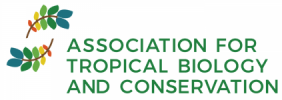The position involves all aspects of care, maintenance, and accessibility of The Field Museum’s mammal collection. This large, actively growing collection is home to many research and education initiatives by both resident and extramural scientists. Duties include overseeing all aspects of specimen preparation, identification, care, and organization of specimens; training, supervision and coordination of staff, students, and volunteers in their collection-related activities; assistance to visitors in their use of collection, processing of recently collected specimens, as well as supervision of outgoing and incoming specimen loans, loan recalls, and loan returns, all conducted in consultation with curator(s) of mammals. Primary responsibilities include the maintenance of records relevant to the collection (electronic catalog, loan invoices, accession files, permits, field notes), providing the public, professionals, and officials with information they need from the collection (including digitizing specimens), and updating records as the collection grows or identifications change. The Collection Manager of Mammals interacts with the Museum’s Science Action, Integrative Research, and Learning centers, as well as with Exhibits programs. The position involves a heavy public engagement component through collections tours, donor engagement, and museum programming, grant writing, liaising with federal and state authorities as needed, and working with other mammal collections and researchers. The Collection Manager will have opportunities to conduct collection-based research, but these will be secondary to collection management responsibilities
Duties and Responsibilities
Coordinating with curator(s) of mammals the following activities:
- Setting and implementing overarching priorities for the mammal collections
- Overseeing accessibility and use of collections
- Processing loans: Specimens to be borrowed are removed from collection for inspection, inventoried, packed (in accordance with IATA regulations) and shipped. Specimens being returned after being borrowed by us are inventoried, packed and shipped. For international transactions, proper paperwork is filed for import and export of specimens, including all relevant federal and/or foreign permits. Specimens received on loan to us are unpacked, inventoried and recorded. Material being returned to us is checked against outgoing invoice as it is unpacked, and reinstalled in collection. Any ID changes for specimens returned to FMNH are recorded on specimen labels and in collection catalogues. Any correspondence that is necessary as follow up or proceeding loan activity is written.
- Cataloging specimens and maintaining database:
- New material is incorporated into the collection, including sorting and identifying, preparing skeletal material, cataloguing, and labeling and installing.
- Taxonomic changes are incorporated into specimen ID’s, including re-labelling specimens accordingly, making changes in catalogues and re- installing.
- Specimens are catalogued and updated in EMu; field notes, permits, and other relevant paperwork corresponding to newly-obtained collections are maintained; loan and accession files are maintained and organized.
- Digitizing specimen data and voucher specimens
- Organization and maintenance of collection: All aspects are inspected, including maintenance of alcohol levels, checking for infestations, and maintaining fumigation protocols.
- Collections are kept organized and accessible, including the tissue collection.
- Supervising the care and use of the dermestid colony.
- Collection area supplies and equipment: All equipment and supplies are monitored and maintained.
- Communication and Outreach: Interaction with professional societies and professional collection users. Interaction with Exhibits and Education, Institutional Advancement, Public Outreach, Tours, etc…
Qualifications
- Master’s degree in Biology (with an emphasis in Mammalogy), or equivalent, with at least 3 years of natural history museum collection experience. Ph.D. is desirable
- The work requires working at a computer, working at a counter or table to process specimens, lifting and carrying jars of specimens (up to 2.5 gallons), and walking between various parts of the collection, which spans 6 floors and covers 30,000 sq. ft. There is periodic exposure to accepted levels of alcohol, formalin, glycerin, and naphthalene.
- An excellent background in Mammalogy is required, including familiarity with other mammalogy collections and researchers, knowledge of taxonomic principles and resources, and expertise in mammal collection management
- Excellent organizational skills are essential to keep the collection accessible and supplied as needed with essential curatorial supplies.
- Experience preparing and submitting annual budgets.
- Knowledge of basic word-processing and spreadsheet software and familiarity with collection databases
- Knowledge of international and domestic regulations for shipment of vertebrate specimens
- Digitization skills are highly desirable, as is familiarity with tissue collections
- Supervisory and personnel management skills are essential for directing collection staff and coordinating researchers, students, and visitors in the collections area.
- Excellent communication, listening, and collaboration skills
To apply, please visit: https://www.fieldmuseum.org/about/careers




